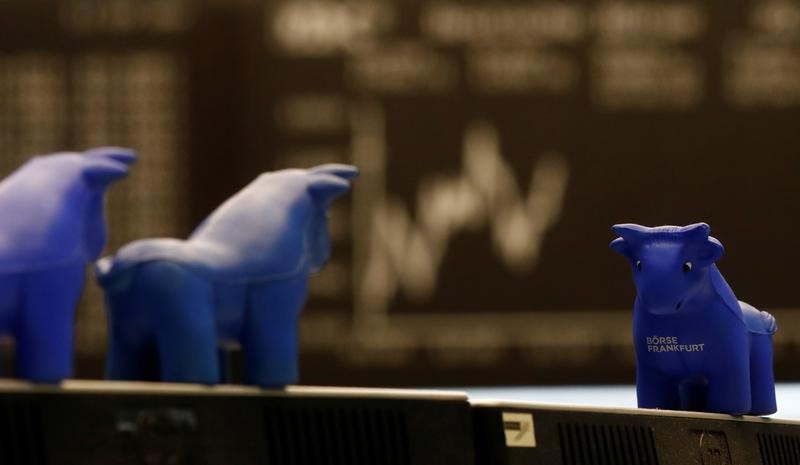This post was originally published on this site

Investing.com – European stock markets traded in a mixed fashion Friday, with investors cautiously monitoring fresh negotiations aimed at ending the war in Ukraine, the spat between Moscow and European nations over the payment of Russian gas, and key Eurozone inflation data.
By 3:40 AM ET (0740 GMT), the DAX in Germany traded 0.1% higher, the U.K.’s FTSE 100 climbed 0.1%, while the CAC 40 in France fell 0.1%.
European equities are trying to rebound Friday after the region’s stock markets suffered their biggest quarterly loss since the start of 2020, with the Russian-Ukrainian war and the associated surge in commodity prices raising concerns of a recession.
Peace negotiations are set to resume by video conference on Friday, but previous talks have achieved very little and Ukrainian President Volodymyr Zelensky warned Thursday of “battles ahead” in Donbas and the besieged southern port city of Mariupol.
Russian President Vladimir Putin said Friday that Moscow would continue supplying gas to Europe, easing fears that he would order a halt of supplies unless Western governments paid in rubles, something they have refused to do.
Russia supplies about a third of Europe’s gas, so the removal of this would likely result in a full-blown energy crisis.
In corporate news, Sodexo (PA:EXHO) stock fell 4.6% after the French catering and food services group cut its guidance for full-year revenue growth, citing the coronavirus pandemic, the Ukraine conflict, and the closure of COVID-19 testing centers in the United Kingdom.
On the flip side, Sanofi (PA:SASY) stock rose 0.8% after the French pharmaceutical giant said it expects to list its drug ingredients business in May, having received approval from the French stock market regulator.
The European economic data slate includes manufacturing PMI numbers for Germany, the region’s manufacturing hub, following on from the Caixin manufacturing purchasing managers index in China falling to 48.1, the steepest rate of contraction since February 2020.
Most eyes, however, will be on the Eurozone consumer prices release for March, which is expected to show another sharp rise to 6.6% on the year, and then the U.S. March jobs data later in the session.
Oil prices weakened Friday, heading for the biggest weekly loss in two years after the Biden administration ordered a massive release of crude from strategic reserves to combat soaring rampant prices.
The U.S. plans to release one million barrels a day for six months, starting in May, which would be the largest release ever from the U.S. Strategic Petroleum Reserve.
International Energy Agency member countries are set to meet later Friday to discuss joining in, following on from the 60 million barrels they delivered at the start of March.
By 3:40 AM ET, U.S. crude futures traded 1.3% lower at $98.98 a barrel, while the Brent contract fell 1.1% to $103.61. The two benchmarks were each headed for a weekly loss of around 13%.
Additionally, gold futures fell 1% to $1,929.90/oz, while EUR/USD traded 0.1% lower at 1.1051.

